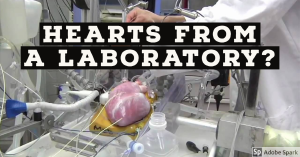Genetic engineering is going to remain a major trend for the future, as with technology and the management of data. According to a release from MedicalExpress, researchers at the University of Michigan have now grown a small but fully-functioning human heart in a laboratory dish.
Michigan State University researchers have created for the first time a miniature human heart model in the laboratory, complete with all primary heart cell types and a functioning structure of chambers and vascular tissue.
In the United States, heart disease is the No. 1 cause of death. “These minihearts constitute incredibly powerful models in which to study all kinds of cardiac disorders with a degree of precision unseen before,” said Aitor Aguirre, the study’s senior author and assistant professor of biomedical engineering at MSU’s Institute for Quantitative Health Science and Engineering.
This study, “Generation of Heart Organoids Modeling Early Human Cardiac Development Under Defined Conditions,” appears on the bioRxiv preprint server.
The human heart organoids, or hHOs for short, were created by way of a novel stem cell framework that mimics the embryonic and fetal developmental environments.
“Organoids—meaning ‘resembling an organ’—are self-assembling 3-D cell constructs that recapitulate organ properties and structure to a significant extent,” said Yonatan Israeli, a graduate student in the Aguirre Lab and first author of the study. (source)
This heart cannot be used clearly for human beings, but as a trend for the future, it will be something to watch as organs and even whole body parts may be cultured in a laboratory for use in people, that instead of having to rely on donations, it may shift gradually to “lab grown” organs. This will be a medical and biotech trend to watch for the future.



